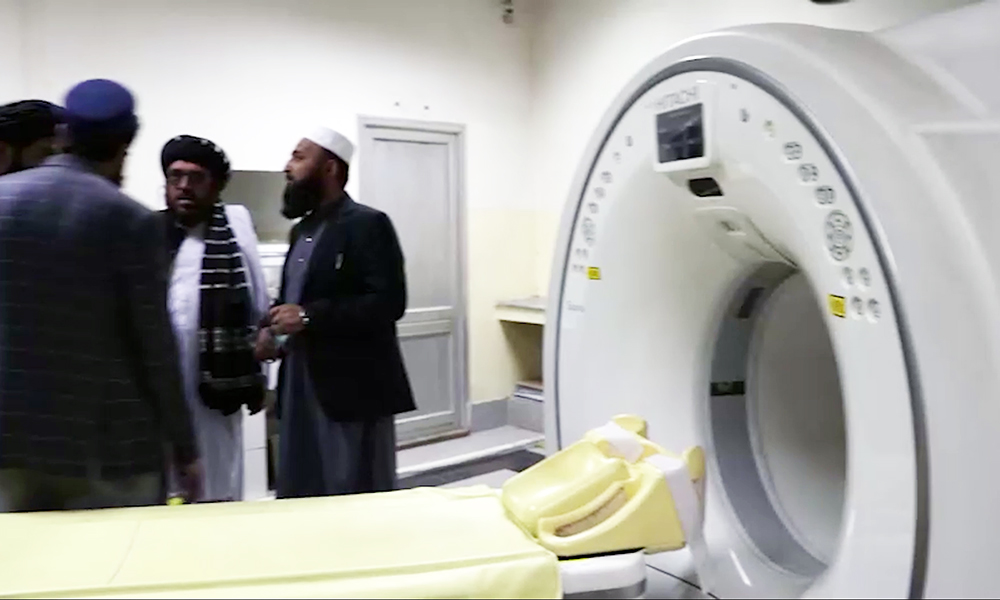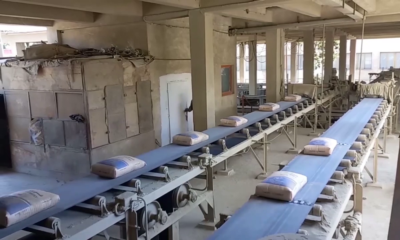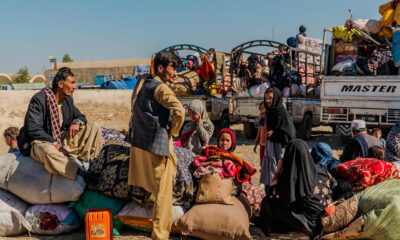Health
EU contributes 10 million euros to improve mental health, drug use disorder services in Afghanistan

The European Union has released an additional 10 million euros (an equivalent of 800 million Afghanis) to improve mental health and addressing drug use disorders in Afghanistan.
This additional EU funding will ensure that the World Health Organization (WHO) and the United Nations Office on Drugs and Crime (UNODC) will provide wider access to mental health and drug abuse treatment and rehabilitation services for vulnerable populations in Afghanistan, including to women and girls, EU said in a statement on Wednesday.
“The EU feels very strongly about improving the health and well-being of the people in Afghanistan”, affirmed Raffaella Iodice, EU Chargée d’Affaires a.i. to Afghanistan. “It is important that those persons who struggle with mental health and drug use disorder have access to comprehensive health services and that they are helped to re-integrate into society. That is why the EU has decided to increase our funding to our partners WHO and UNODC. With this additional funding more people in need will be reached.”
“The EU’s support is essential in facilitating access to mental health and drug abuse treatment and rehabilitation services for vulnerable populations in Afghanistan,” emphasized Dr Luo Dapeng, WHO Representative in Afghanistan. “This additional €10 million funding will significantly enhance our endeavors to tackle the existing mental health and drug use disorder challenges among these populations, thereby enabling us to deliver the requisite care and support they rightfully deserve.”
EU said Afghanistan sees nearly 4 million drug user which equals close to 10 per cent of the population, and the worsening crisis has left most of the country’s drug treatment and rehabilitation centers struggling to cope and drug users without access to treatment.
“The additional funding is crucial in addressing drug use and its related disorders in Afghanistan by increasing access to integrated, evidence-based and human rights-oriented drug treatment and rehabilitation services”, said Anubha Sood, UNODC Representative in Afghanistan.
Health
Azerbaijan urged to help improve capacity of Afghan health workers

Acting Minister of Public Health Qalandar Ebad, in a meeting with Azerbaijan’s ambassador, Ilham Mohammadov, called for the country’s assistance in improving the capacity of Afghanistan’s health workers.
The two sides also discussed cooperation in the health sector, capacity building of Afghan health workers, and Azerbaijan’s role in the health sector and other issues, according to a statement released by the Public Health Ministry.
Azerbaijan’s envoy said that his country seeks to cooperate with Afghanistan in a sustainable manner in the field of health.
In other news, the foundation stone for the construction of oxygen production facility was laid at the Indira Gandhi children hospital in Kabul.
Officials of the Ministry of Public Health said that the facility will be built with the financial and technical assistance of the World Health Organization, and with the capacity to produce 200 cylinders of oxygen daily to meet not only the needs of the hospital, but also other health facilities.
Health
Balkh health officials report sharp increase in number of cancer patients

Balkh Public Health Department officials say there has been a significant increase in the number of patients with cancer in the province.
“In 1401, about 2,613 OPD (out patient department) cases were registered with us. In 1402, these figures were 4,912 cases,” said Ehsanullah Kaliwal, the head of the oncology department at Balkh Regional Hospital.
Some doctors say genetic factors, environmental pollution, arbitrary use of medicines, and excessive consumption of meat were reasons for the sharp increase.
One doctor said cancer was also hereditry.
However, a large percentage of cancer patients in Balkh have stomach cancer. Many of them have appealed for the government to improve treatment facilities.
According to health officials, in the first month of this solar year (April), 423 cancer patients visited this hospital for treatment.
Health
Majority of Afghans with mental disorders are women: officials

Based on last year’s data, 52 percent of people with mental disorders in Afghanistan are women, the Ministry of Public Health said.
However, after the Islamic Emirate took over the country and with the improvement of nationwide security and the provision of better health services, mental disorders have decreased, the ministry said.
“Overall, the mental security of men and women in Afghanistan is not ensured and their mental security is disturbed. According to the figures shared with us, in 2023, 52 percent of the visitors for mental disorders were women,” said Sharaft Zaman Amarkhil, the spokesperson of the Ministry of Public Health.
“Generally speaking, we can say that compared to the past, the instances of mental illnesses have decreased,” he added.
People suffering mental disorders mostly refuse to share their problem, willingly or unwillingly.
“There are many problems at home; We are poor. I finished school, but didn’t find any job,” Ansar, a mentally ill person, said.
According to the World Health Organization (WHO), half of Afghanistan’s population suffers from mental distress.
Factors such as unemployment, poverty, domestic violence, ban on girls’ and women’s education and work, and drugs are said to be key contributors to mental distress.
-

 World5 days ago
World5 days agoNorth Korea officials visit Iran in a rare public trip
-

 Sport4 days ago
Sport4 days ago‘Serious talent’ Fraser-McGurk bonds with Warner to light up IPL
-

 Latest News4 days ago
Latest News4 days agoOver 1,000 Afghan refugees forced out of Pakistan in one day
-

 Sport2 days ago
Sport2 days agoAfghanistan beat Iraq 5-3, inch closer to Futsal World Cup berth
-

 Regional2 days ago
Regional2 days agoNew UK sanctions target Iranian drone industry
-

 Regional4 days ago
Regional4 days agoTurkey accuses U.S. of double standards over Gaza in rights report
-

 Latest News2 days ago
Latest News2 days agoEU allocates 17 million euros to support Afghans on the move
-

 Latest News2 days ago
Latest News2 days agoPakistan extends registered Afghan refugees’ stay till June 30
























